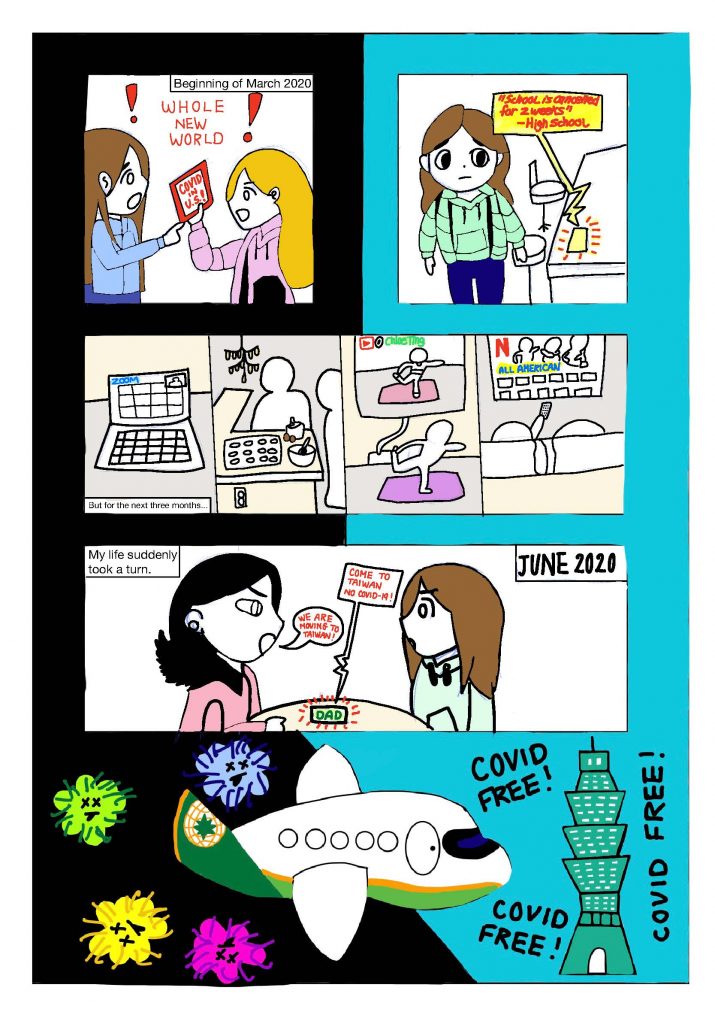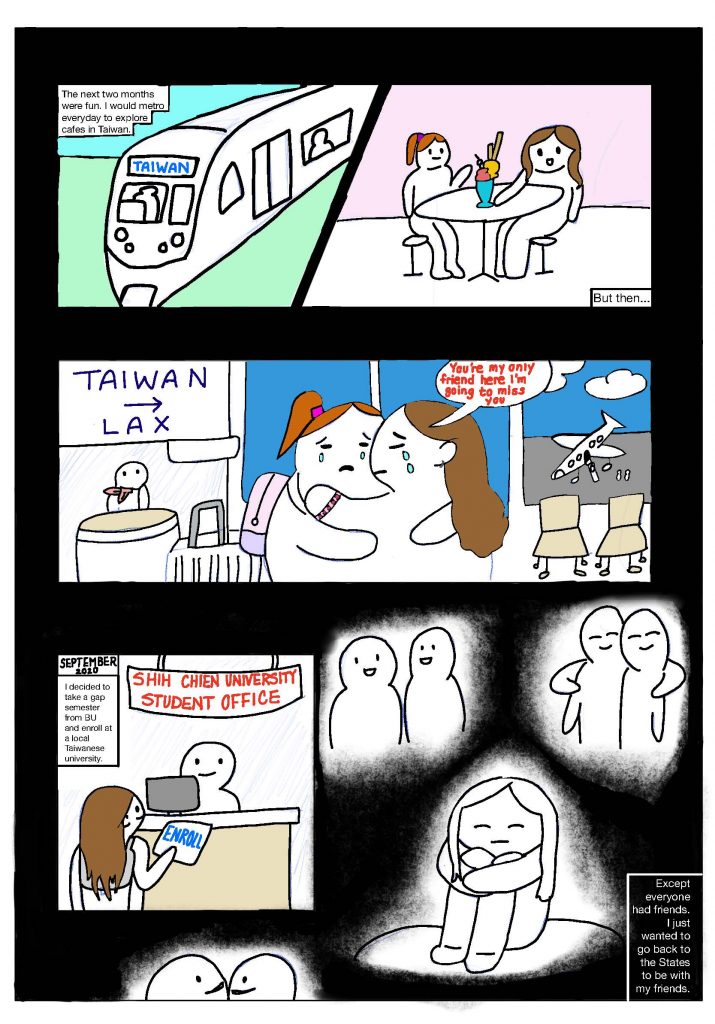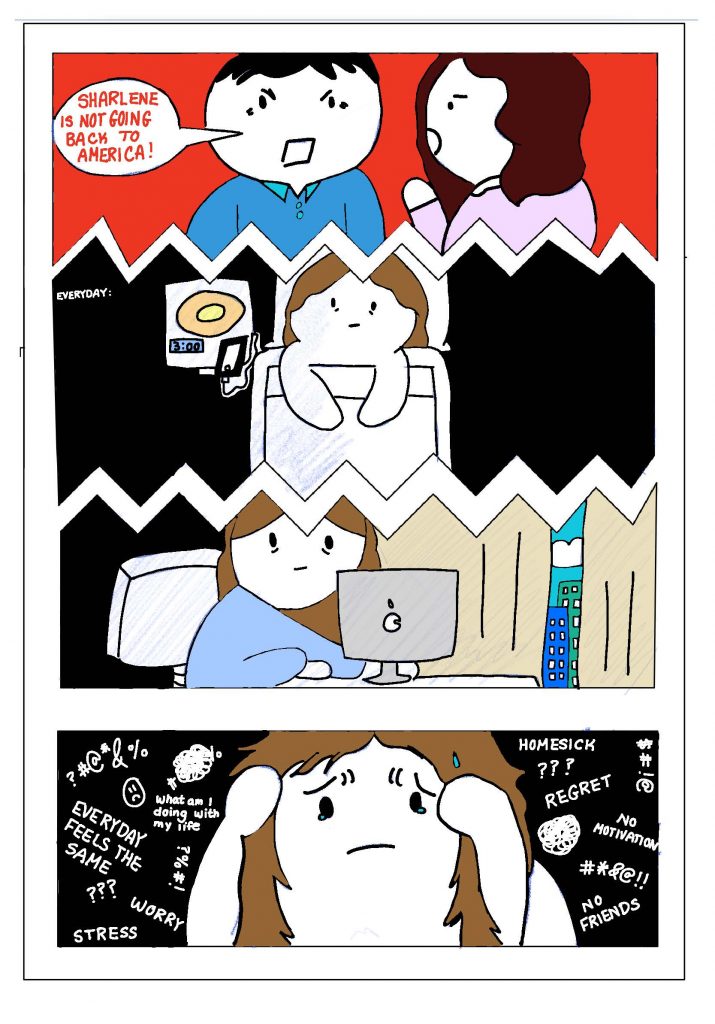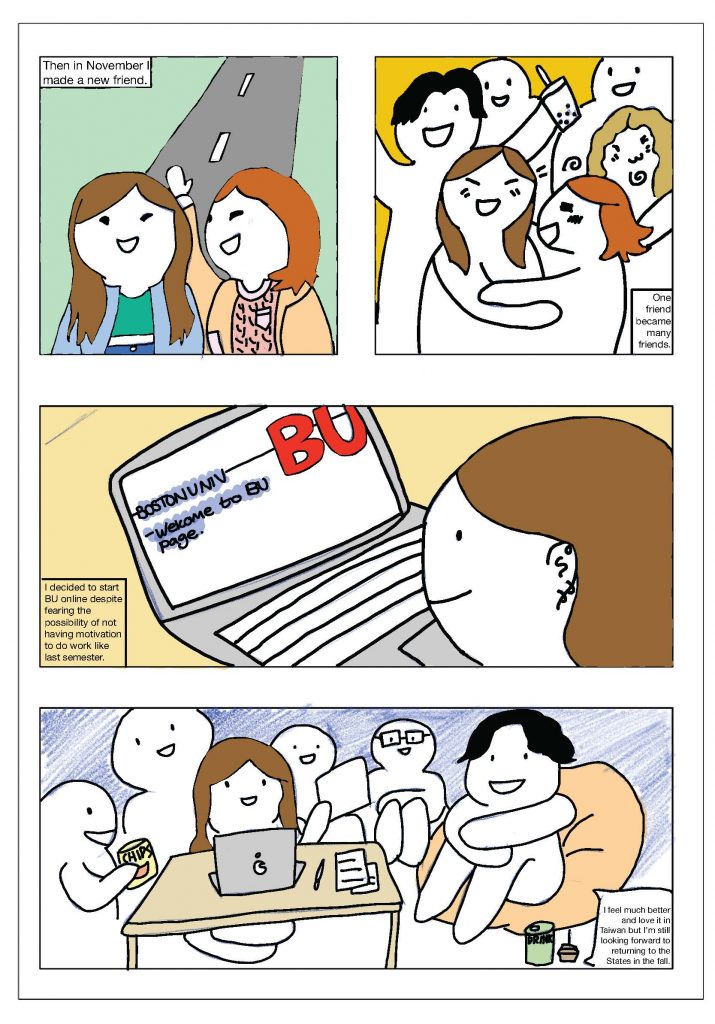Whole New World
Sharlene Chang
Instructor’s Introduction
In Understanding Comics, Scott McCloud introduces a concept that has become influential for making sense of comics’ impact on us: amplification through simplification. The more pared-down a design is, his theory goes, the more its central meaning is intensified; in particular, simply-drawn characters invite us to identify with them and project ourselves into their stories. Sharlene’s comic makes extraordinary use of this principle of narrative economy – which is all the more amazing because I don’t teach McCloud in my WR 120 course, “American Comics.” By simplifying her character designs and backgrounds to their essential features, Sharlene cuts to the heart of what’s important in conveying her experience of the pandemic’s first year, and she allows each of us to enter her protagonist’s world.
Her characters’ faces are wonderfully expressive, and students might productively discuss the various means through which Sharlene conveys their emotional states. One of these is Sharlene’s clever use of color: she deploys black backgrounds to express anxiety, isolation, and depression as they grow, recede, and grow again; conversely, a pastel palette signals well-being in Taiwan specifically. Her story is at times broadly representative; I love the Zoom-cooking-exercise-Netflix sequence early on. At others, it’s very specific: how many of us moved to other countries where there was “no Covid” and had to experience displacement and loss several times over? In this way, this story brings to life James Joyce’s precept that the universal lies in the particular. With its rich, thoughtfully-paced emotional arc, Sharlene’s comic is a terrific tool for thinking about how to tell a story effectively.
The graphic narrative assignment comes midway through my assignment sequence for the course, just as we finish reading autobiographical comics from the 1960s and 1970s “underground” comics scene; I ask students to tell a story based on an event in their own lives or the life of someone they know. In doing so, students think carefully about genre and audience, and they practice developing a daunting project in small steps; just as importantly, I’ve found that the process of drawing comics makes students significantly more sensitive to the purposiveness of artists’ choices when they write their final argumentative and analytical essays a few weeks later.
Marie McDonough
Whole New World
Sharlene Chang is a student in the School of Hospitality Administration.



